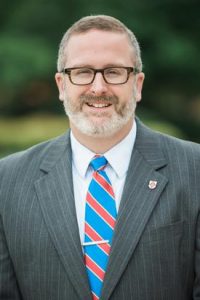Nobody is Hiring, So What Can I Do with My PhD in Theology?

Dr. Nathan A. Finn contributed today’s post. Dr. Finn is Dean of the School of Theology and Missions and Professor of Theological Studies at Union University in Jackson, Tennessee, USA. We are grateful for his contribution.
For eight years, I served on the faculty at a large theological seminary, where I was part of a committee that redesigned our PhD programs in Historical Theology and Systematic Theology. I continue to teach and supervise several students studying historical theology. For the past two years, I’ve served as the dean of a college that focuses on theological education within the context of a Christian liberal arts university. One of my responsibilities as dean is hiring new faculty in my school.
As both a supervising professor and an academic dean, I spend a fair amount of my time talking to men and women who are pursuing advanced studies in theological disciplines. Almost all of them want to know what they can do with their PhD, especially in a job market where few schools are expanding the size of the faculties. I believe there are several ways a PhD in a theological discipline can be useful, even if you can’t find a permanent teaching post in a traditional university or seminary.
First, you can pursue ordination to the clergy and serve in a local congregation. A growing number of clergy, especially those of evangelical sentiments, have become interested in the “pastor-theologian” model that blends advanced theological studies with pastoral ministry. Like some of the faculty members who are or have been a part of St. Mary’s College, these pastor-theologians believe that theology is a discipline from and for the church, not just the academy. But they also believe that full-time pastors who are able to should write academic theology that contributes to the guild, and not simply pastoral theology that is geared for laypersons (though the latter is also really important). If you’ve sensed some sort of call to pastoral ministry alongside your desire to pursue advanced theological studies, then perhaps the latter should be put in service to the former. (A similar argument could be made for parachurch work rather than ordained ministry.)
Second, you can pursue adjunct teaching opportunities in addition to working full-time in a non-academic field. To be clear, there isn’t an endless supply of adjunct opportunities, either—but there are far more of these positions than there are permanent teaching posts. Furthermore, with the proliferation of extension and online programs, there are ways to serve as an adjunct professor without having to live physically close to a university or seminary. I’m increasingly seeing bi-lines on the back of books that say something like “Jehoshaphat Jones is pastor of Calvary Church in Eden Prairie, MN and serves as an online adjunct professor of Old Testament at Freedom Christian University” or “Talitha Tuttle is a systems analyst for Major Corporation and teaches biblical studies at Evangelical Bible College.” Perhaps you would find personal fulfillment and be able to use your training in a meaningful way by teaching part-time, but also having a full-time career outside the academy.
Third, you can teach in the majority world. Thanks to scholars such as Andrew Walls and Philip Jenkins, most of us now know that most of the Christian growth of the past century is in the Global South rather than North America, Europe, and Australia. In many of these contexts, theological education is a growing priority. With a PhD in a theological discipline, you might be able to secure a permanent teaching post in a university in parts of Asia, Africa, or South America. Or you might be able to teach in a seminary or theological college that focuses on ministerial training. Or you might be able to be a part of a ministerial training initiative that isn’t tied to a brick-and-mortar institution, but takes theological education to indigenous pastors and evangelists. Some positions require relocation to a new country, while others are roving positions that enable you to live wherever you wish. The sky really is the limit if you have a PhD and feel a sense of calling to advance theological education in non-Western contexts.
You’ve spent a lot of time working on that PhD, and hopefully you began the program “eyes wide open” when it comes to job prospects in the academy. Keep writing. Keep accepting short-term teaching assignments. Keep attending professional conferences. Keep networking. Keep sending people like me your updated Curriculum Vitae! But as you do these things, be open to other opportunities and even vocations where you can use your training to advance Christ’s kingdom, serve his church, and contribute to human flourishing.
While your suggestions are all good and appropriate, I would add that the first reason one should undertake a PhD in theology - or any other subject for that matter - is out of a passion for the subject itself. Pursuit of anything in the academy should not be undertaken for utilitarian purposes, but for love of truth, beauty, and virtue wherever these are found: from art to biology to theology.
rather than how they might help you by hiring you. And if you aren’t tailoring your materials for each individual job, then you’re never going to get anywhere—promise. It sounds sort of silly and, I don’t know, last century, but personal presentation actually can have a huge amount to do with the impression you make and your hirability. Are you clean? Smell nice? Wearing clean, pressed, well-fitting clothes? Great. Are you pierced or sporting lots of visible tattoos? This, unfortunately (and yes, somewhat unfairly), can impact your chances—same with showing up unshaved.
This is so encouraging. Am rounding off my PhD program in 2months time since 2017, I hope to make good use of it.